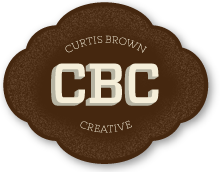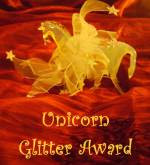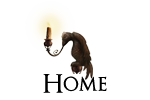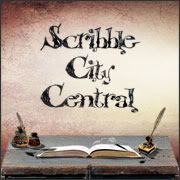Dreamy, gothic, chilling, macabre--these are all words which can be applied to Joanne Owen's first two novels, Puppet Master and The Alchemist and the Angel. They are a hauntingly original blend of the historical with a kind of Angela Carter-esque fantastical absurd. But I think what I like best about Joanne's books is that they are liberally dotted with golden nuggets of folkloric myth. The tales of Central and Eastern Europe are not my field of expertise--Baba Yaga is one of my favourite stories (as it is Joanne's), but that's about as far as it goes for me. So when I met Joanne for the first time this year (we shared a speaking platform at a recent Writeaway conference) my ears pricked up at once when she started talking about Cabinets of Curiosity and Chapels of Bones and, of course, all that Slavic and Czech folklore. It was immediately obvious to me that she would be the perfect person to do a Mythic Friday interview, and after reading her books I'm all fired up to go and find out more about golems and magic hazelnuts and enchanted tree stumps in deep dark forests. No doubt I shall have nightmares for weeks! Welcome to Scribble City Central, Joanne, thanks for visiting and over to you.
Do you think that the retelling of myths is important or relevant for the children of today? Why should they care about some “dry old stories” which come from ancient or forgotten cultures they might never even have heard of?
Yes, I think myth, legend, folk and fairy tales are still very much relevant and important. Their exploration of character archetypes and the psychology of relationships, fear, conflict and confronting and overcoming problems has enormous emotional resonance. They also open doors to other times and places, bringing history alive in a far more intense and inspiring way than simply reading about those places and periods in a text book. Above all, whether populated by vengeful gods and goddesses, monstrous beasts, wicked witches or wise old women, they possess an incredible capacity to excite, terrify, inspire and delight - nothing dry about that!
What age were you when you came across your first myth or myths? Tell us how you felt then about the myths you first discovered. Did you love them or hate them? Did they scare you, excite you—or were you indifferent? What kind of myths were they? Greek? Norse? Native American? Celtic? Or from another culture entirely? Were they in a book you read? Or did you hear them as oral storytelling from someone else?
Not exactly myths in the strict sense, but one of my earliest memories is being read a collection of fairy tales I still have. There was a time - I must have been five or six - when my dad read Rapunzel to me every single night! I always preferred the scarier stories, the thrill of following a character’s journey through the most unimaginably terrible situations, from being trapped in a tower by a wicked witch, to being set the overwhelmingly impossible task of spinning wool into gold, to the horror of realising the gingerbread house in the deep, dark woods is anything but a safe haven.
As a child, I also enjoyed Welsh folk tales, and from classical mythology I found Pandora’s Box particularly impactful. I was intrigued by the idea that she was said to have been the first ever woman, and you can’t fail to empathise with her desire to open the box, and share her horror when she realises she’s responsible for unleashing evil into the world.
Looking back, what is your favourite myth of all time, from any culture? And why would you choose it?
Tricky, but I think it has to be all those tales connected with the Slavic witch Baba Yaga. ‘Baba’ means granny or old woman in many Slavic languages, and she’s very much an archetypal crone figure, sharing characteristics with the likes of Hecate and The Fates of classical mythology. Bony, long-toothed, and wild-haired, Baba Yaga scales the skies in a pestle-propelled mortar, and lives in a log cottage that’s raised from the ground by a pair of chicken legs and surrounded by a skull-topped fence. Some believe her origins reach back as far as Paleolithic times, when she was a patroness/goddess of huntsmen, horsemen and agriculture. She’s most known as a destructive force, but her reach is all encompassing: she’s both Destroyer and Creator. She controls time and nature, the rising and setting of the sun and the cycle of the moon. Life and death – human, animal and plant - is in her command. She’s also Mistress of the Underworld: her hearth is said to be the threshold to the world of the dead. In some stories more weight is given to her all-knowing capacity. Interestingly, the Russian word for witch, ved’ma, derives from the word to know, ved’. One of my favourite Baba Yaga stories is ‘Vasilisa the Beautiful’ in which a girl, guided by her magical wooden doll, successfully completes a series of tasks set by Baba Yaga and is freed from her bullying stepfamily.
Who is the mythical being you most dislike, and what made you feel that way about them?
None in particular come to mind. There are plenty of unpleasant, horrific mythical beings, but that’s their purpose and appeal!
Is there a mythical beast you are particularly fond of? If so, which one?
Again, no single being or beast comes to mind, but at the moment I’m preoccupied with Slavic Rusalki – the water-dwelling ghosts of girls who’ve died untimely or violent deaths – who will play a role in my next book.
How have myths had an influence on your writing life, if at all?
Very much so. In my first two books I retell Central European folktales and legends about Prague, and interweave them into the narrative and characters’ lives.
The initial idea for my first book, Puppet Master, was sparked by the legend that tells how Prague was founded by a young woman called Libuše. Prophetess, healer and wise woman, Libuše was elected to be her tribe’s first ever queen and foretold Prague’s greatness as a city of spires and gold. Both Puppet Master and my second book, The Alchemist and the Angel, incorporate several such tales and legends – from Prague-specific stories about blinded clockmakers and golem creatures fashioned from clay, to Czech and Slovak folktales populated by trickster devils and tree stumps that transform into greedy children.
As well as Baba Yaga and the Rusalki beings previously mentioned, I’m currently enjoying lots of Russian and Baltic stories and legends as I plan my next novel, including some very exciting Lithuanian nature god myths.
If you could choose to be the demigod child of one mythical god or goddess from any pantheon, which one would it be? Which power would you like to inherit from them—and what would you do with it?
I’ve always been more drawn to and inspired by home-spun folktales than myths about all-powerful gods or super humans. I love the idea of adventures happening close to home, of the seemingly ordinary and domestic being transformed into the weird, miraculous, terrifying or magical. So it follows that I’d prefer to be the granddaughter of a wise old woman than to have superhuman powers, or be the offspring of a particular god or goddess.
More about Joanne:
Joanne Owen was born in Pembrokeshire, Wales and read Anthropology and Archaeology with Social and Political Sciences at St. John's College, Cambridge. A visit to Prague in 2000 inspired her first novel, Puppet Master (Orion, 2008), which was long-listed for the Carnegie Medal and Branford Boase Award, described as ‘beautifully crafted, rich in the tradition of circus, theatre and magic’ (Julia Eccleshare, Love Reading) and has been translated into German, Polish, Greek, Dutch and Romanian to date. Her second novel, The Alchemist and the Angel (Orion, 2010), follows an orphan’s quest to create an elixir of life in Renaissance Prague, a journey that takes him from the city’s plague-ridden ghetto to the court and Cabinet of Curiosity of alchemy-obsessed Emperor Rudolf II. Joanne now lives in north London where by day she works in publishing and by night writes and plays accordion and bass guitar.
Become a fan of Joanne Owen Books on Facebook
Follow Joanne on Twitter http://twitter.com/joanneowen
Visit http://orionbooks.co.uk/ for further information
Friday 13 August 2010
Mythic Friday Interview: Number 19 - Joanne Owen
Subscribe to:
Post Comments (Atom)
















No comments:
Post a Comment